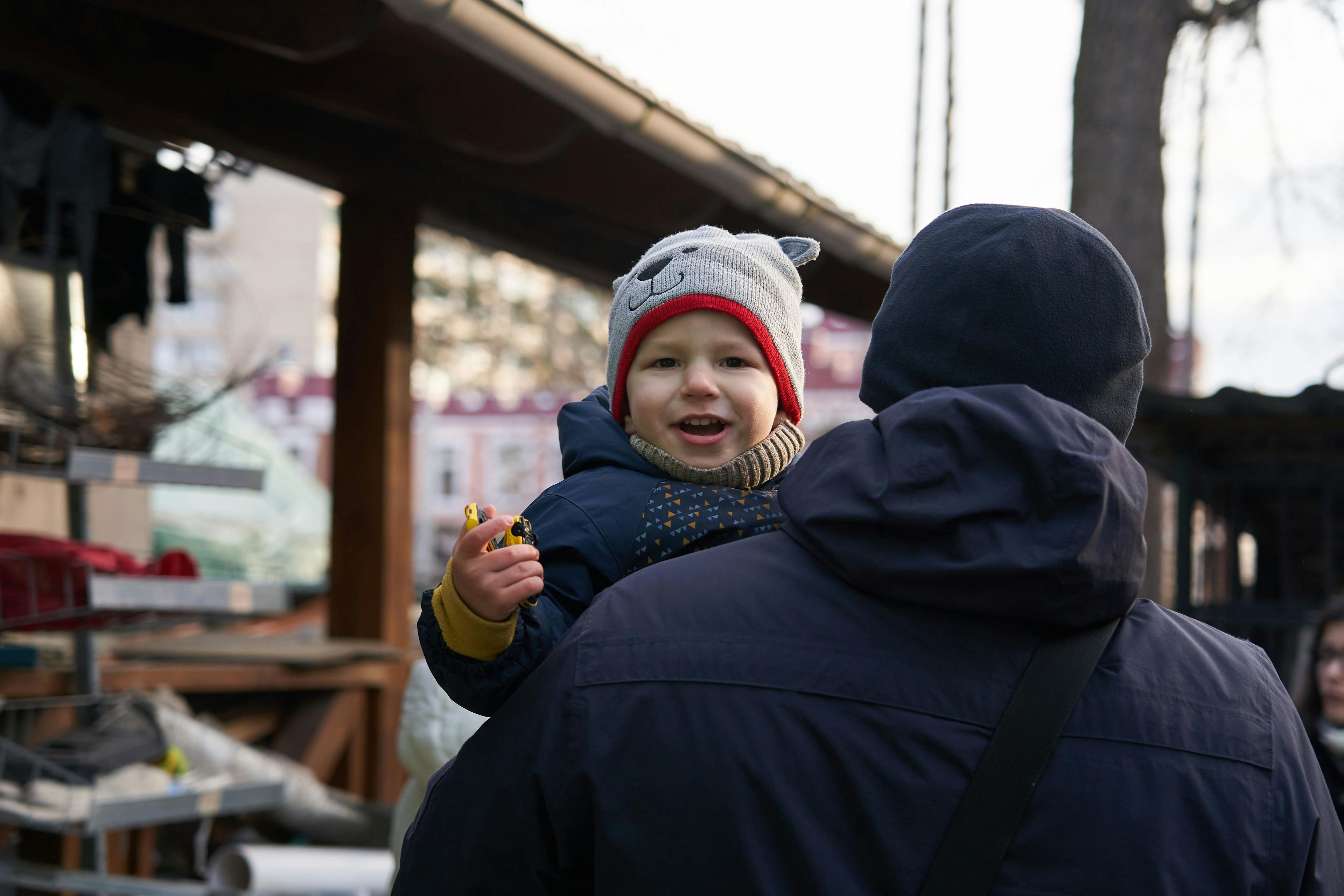
UNICEF/UNI523789/Filippov
Ukraine:
Two years of war causes
major mental health crisis in children
Home
Media Releases
Ukraine: Two years of war causes major mental health crisis in children
23 February 2024
NEW ZEALAND, 23 February 2024—As the second anniversary of escalated violence in Ukraine approaches on February 24th, attacks continue unabated and a severe mental health crisis amongst the country’s children has emerged, says UNICEF.
Two years of destruction, violence, separation from family and friends, loss of loved ones, and disrupted schooling, health care and social services have led to significant mental impacts on children. UNICEF analysis of the latest data shows children in Ukraine’s frontline areas have been forced to spend between 2,800 and 4,800 hours sheltering in basements as air raid alerts sound above - the equivalent of four to six and a half months spent underground.
UNICEF Ukraine Chief of Communications, New Zealander Damian Rance, says the constant fear of death, injury and further loss is compounded for children by the continued attacks.
“Even when the bombing stops, the ground children walk on can cost them their lives, as mines and explosive remnants of war cover an estimated 30 per cent of the country,” he says.
“They have experienced prolonged disruption of schooling and routine, sparking a deep sense of fear, dread, and anxiety. These feelings, coupled with isolation, manifest in ways that make it incredibly challenging for children to process their stresses, learn, play, and participate in everyday life”.
Rance says many children who have sought refuge in neighbouring countries are struggling to access education, health care, and protection services, and, as the war wages, face the prospect of long-term displacement and deprivation.
“Despite their resilience, for many children inside and outside Ukraine, the war has taken away two years of schooling, playtime with friends, and moments spent with loved ones – a normal childhood. It has robbed them of their education and happiness, which has a devastating impact on their mental state,” he says.
Since the escalation of the war two years ago, UNICEF has expanded its work and is currently present in Kyiv, Lviv, Odesa, Dnipro, Poltava, and Kharkiv to provide humanitarian assistance and critical support to children and families. This is centred around ensuring children have access to health care, immunisation, nutrition support, protection, education, safe water and sanitation, social protection, and mental health and psychosocial support.
UNICEF Aotearoa is running a Ukraine emergency appeal, which has raised over $2 million since February 2022. Donations have allowed UNICEF to provide children and families with access to healthcare and power generators to support safe drinking water and heating systems. Children’s winter clothing, blankets, heaters and mobile boilers have also been provided to families.
UNICEF Aotearoa CEO Michelle Sharp says it is our collective responsibility to call for an end to attacks and protection for future generations.
“This war has been devastating for Ukraine’s children. Children with disabilities, children without parental care, children at risk of family separation, and children in institutions remain particularly vulnerable,” she says.
“We are calling for an an end to attacks on civilian areas and the critical infrastructure children rely on, as well as respect for humanitarian principles, international humanitarian law, and human rights law, including to end and prevent grave violations against children”.
New Zealanders can help by donating to the UNICEF Aotearoa Ukraine emergency appeal at www.unicef.org.nz/appeals/ukraine-emergency
Impact in numbers:
- Ongoing violence has contributed to the deaths and injuries of at least 1,822 children.
- Thousands of schools, hospitals, homes, and sources of water and energy have been destroyed.
- 40 per cent of Ukraine’s children cannot access continuous education due to a lack of facilities.
- In areas nearer to the frontline, half of all school-age children are unable to access education.
- Latest data shows that the scale of learning gaps seen in 2022 compared to 2018 is equivalent to two years loss in reading and one year loss in maths.
- Half of 13- to 15-year-olds have trouble sleeping, and 1 in 5 are experiencing intrusive thoughts and flashbacks because of post-traumatic stress disorder, while parents are reporting elevated levels of anxiety, excessive fear, phobias, increased sadness, decreased engagement in school, sensitivity to loud noises, and sleep troubles among their children.
- Stigma and a lack of access to support have prevented children from getting the mental health care they need. Three-quarters of children and young people aged 14 to 34 recently reported needing emotional or psychological support. However, less than a third of them sought help.
- There have been some 1,277 attacks impacting health care facilities since the escalation of the war, leaving many facilities damaged or destroyed by shelling, and killing and causing serious injuries to health workers and patients – including children.
- Around half of Ukrainian refugee children are not currently enrolled in national education systems in their host countries.
